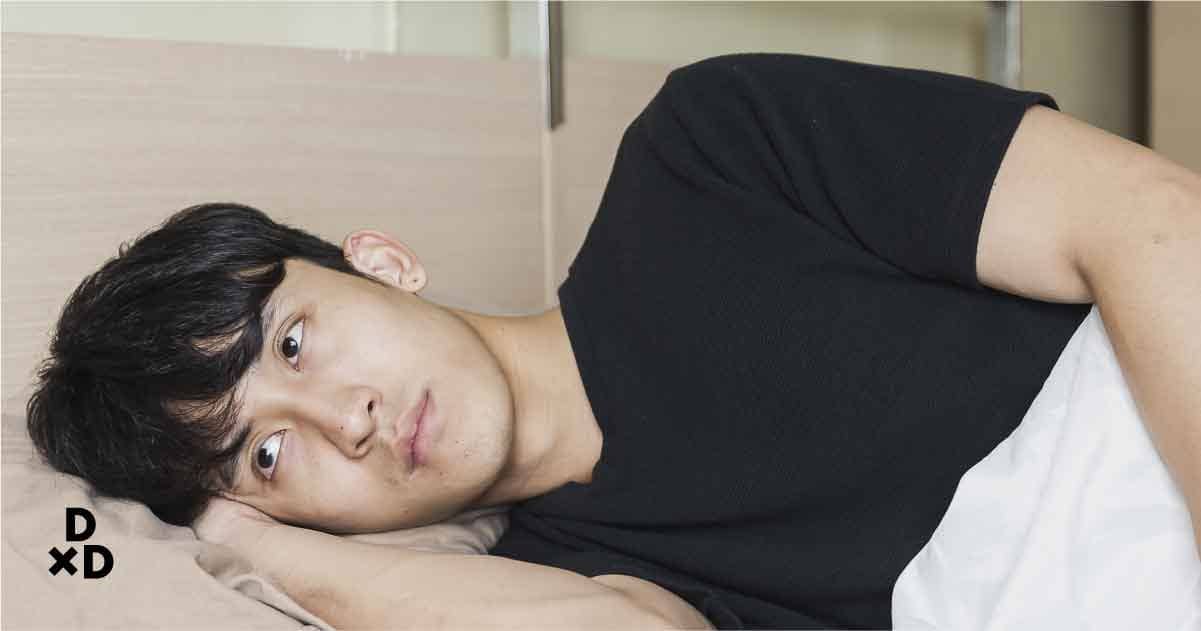Sleeping is supposed to be a time for your body to rest and rejuvenate. Unfortunately, some of us suffer from sleep disorders which can affect our sleep quality. This article will tell you what you need to know about sleep disorders and what treatment you can get for it.
What are sleep disorders?
Sleep disorders are conditions which affect an individual’s quality and quantity of sleep. This could lead them to feel more tired, exhausted and sleepy in the daytime. Some common sleep disorders include:
Insomnia disorder. Insomnia is one of the most common sleep disorders. You may find it hard to fall asleep, stay asleep or fall back to sleep after waking up in the middle of the night or early awakening [1]. This sleep disturbance is not explained by the use of medications, or any other medical or psychiatric disorder.
Short-term insomnia is common among adults where insomnia lasts for a few days or weeks. However, long-term insomnia, also known as chronic insomnia, can last for a whole month or even longer.
If you wish to find out more about insomnia, you can look here.
**Sleep Apnea. Sleep apnea is a condition where *your breathing stops temporarily* when you sleep, causing you to awaken a number of times in the night to gasp for air.
People with the condition often do not remember waking up in the middle of the night but will feel exhausted or sleepy the next day. It is a sleep disorder that possesses a potential threat to your health [2]. Sleep apnea can affect both adults and children.** **Find out more sleep apnea in children here.
**
**Narcolepsy. Narcolepsy is the excessive and uncontrollable urge to fall asleep at various times throughout the day. You might *experience sleep paralysis* or hallucinations while falling asleep or upon awakening. In some cases, you might lose muscle control, often triggered by a strong emotion** [3].
Restless Legs Syndrome (RLS). RLS is known as the uncontrollable urge to move the legs while resting. Some symptoms include a crawling sensation or ache in the legs, which may worsen when you are inactive or at night [4]. You can get temporary relief from such symptoms when you stretch, walk, or make any forms of movement with your legs.
Some causes of sleep disorders
- Stress, anxiety, low mood and insomnia
- Sleep Apnea and its causes
- Narcolepsy as a brain disorder
- Restless Leg Syndrome and its causes
There are many different causes for different sleep disorders. Some are discussed in detail below:

1. Stress, anxiety and low mood as a cause of Insomnia
Stress is probably the biggest cause of insomnia. Some stressful events include:
- The death of a loved one
- Job loss
- School pressures
When you feel stressed over something, you find that your mind remains active at night, making it harder to fall asleep. If your mood is low or you feel depressed, it can be harder to fall asleep too, especially if you ruminate a lot.
This is because your activities and daily rhythms act as an internal clock which helps to regulate your sleep cycle, metabolism, and body temperature. Anxiety and depression can affect the internal clock leading to insomnia.
Major disruptions in daily schedules can lead to chronic insomnia. Examples of such disruptions include travelling across time zones which results in jet lag, shift work, and even excessive use of smartphones/electronic devices just before bedtime [5].
2. Sleep Apnea and its causes
Sleep apnea occurs when your airways become blocked which are caused by the laxity of the tissues behind the nose, the palate and throat. Obesity could mean a greater amount of tissue around the neck, increasing the chances of obstruction of the airway. Other contributing factors include a small jaw, a large overbite, or an individual’s behavioural choices, such as the excessive intake of alcohol prior to sleeping.
3. Narcolepsy as a brain disorder
Narcolepsy is a central nervous system disorder. Although it is not completely understood by doctors and scientists, research suggests that a combination of factors could lead to the lack of chemical hypocretin in the brain [6]. Lacking hypocretin is the main cause of Narcolepsy.
Family history may point to genetic factors but negative family history is actually more common. Traumatic brain injuries or autoimmune disorders may be other causes.
4. Restless Sleep Syndrome and its causes
The cause of RLS is not fully understood. research has shown that it is a brain disorder that could be due to an imbalance in dopamine [7], which is a brain chemical that sends signals to control muscle movements. If one suffers from RLS before the age of 40, there is a high chance that it is because it runs in the family.
RLS can develop at any point in our lives, even as children, but the incidence increases with age. It is more commonly observed in women than in men. RLS can also occur during pregnancy.
Some other risk factors of RLS include:
- Peripheral neuropathy
- Iron deficiency
- Kidney failure
- Spinal cord conditions.
Ultimately, there are a variety of reasons and causes for sleep disorders. If you are unsure about which may apply to you, it is always recommended for you to consult a doctor.
Impacts of leaving sleep disorder untreated
To put it simply, leaving sleep disorders untreated will result in sleep deprivation. Persistent sleep deprivation can result in a number of dire consequences [8]. Some of them include:
Emotional instability. You may feel an onset of mood swings or start to feel more impatient and irritable. This emotional instability can also compromise your decision-making and creativity.
Hallucinations. These occur when you start to see or hear things that are not there. Long term sleep deprivation can lead to hallucinations and paranoid and suicidal thoughts.
Anxiety and depression. Anxiety and depression can lead to insomnia, and insomnia can in turn cause or worsen anxiety and depression. It is important to break this cycle.
**Microsleep episodes. This is where you *fall asleep for just a few seconds* without realizing it. These episodes are out of your control. It is a dangerous consequence of sleep deprivation, especially if you are operating heavy machinery or driving a car.**
**Weakened immune system. Your immune system actually produces substances like antibodies while you are asleep. A lack of sleep can affect your immune systems. Hence *good sleep increases your immunity* and ability to combat viruses and bacteria. Sleep deprivation would mean that it would take a longer period of time for you to recover from or an inability to combat infections.**
Increased risk of memory problems. Doctors and researchers have found that sleep deprivation is associated with memory problems and possibly increases the risk of dementia.
Increased risk for chronic conditions. Lack of sleep disrupts your body’s ability to function normally and can hence increase the risk of developing chronic illnesses such as heart attacks and strokes. Moreover, sleep deprivation can lead to a decrease in the amount of insulin that is released in your body after you eat [8]. It also causes the body to be less tolerant to glucose and more resistant to insulin. These results in an increased risk of developing diabetes and obesity.
This list is not exhaustive and there are more consequences that can result from long-term sleep deprivation.
At the end of the day, sleep disorders can lead to a serious impact on your physical and mental well-being and hence cannot be ignored.
If you suspect that you are suffering from some form of sleep disorder, it is important for you to consult your doctor.
Types of treatment available for sleep disorders
Different sleep disorders need different types of treatments. Behavioural changes through cognitive behavioural therapy is one of the best treatments for some types of insomnia.
However, your doctor might prescribe medicines to ensure that you get the rest that you need.
Prescription Pills
There are 2 main purposes of prescription pills - helping you fall asleep or helping you stay asleep [9]. Some ‘sleeping pills’ that your doctor may prescribe are:
- Diazepam (Valium)
- Lorazepam (Ativan)
- Zopiclone (Imovane)
While sleeping pills may be an extremely quick and effective solution, they come with various side effects. Dizziness and sedation may lead to falls, especially in the elderly. Other side effects may include:
- Headache
- Nausea
- Impaired daytime function due to the hangover effect
Long term use of Sleeping pills is generally not recommended.
Other medications like antidepressants are useful for insomnia, especially if anxiety or low mood are related to insomnia. Usually, these can be used in the longer term.
If you are pregnant, breast-feeding, or are an older adult, would be good to seek professional advice for the most appropriate treatments.
Cognitive Behavioural Therapy for insomnia
Cognitive behavioural therapy for insomnia (CBT-I) is usually the first line of treatment for insomnia disorder. It is a program that is structured to help you identify and replace behaviours that may be affecting your sleep with new ones that improve your sleep.
The first step to CBT-I is to identify the cause of your sleeping problems. At this stage, your doctor or therapist may recommend you keep a journal log to keep track of your sleep patterns.
This would allow your doctor to better understand the situation surrounding your sleep schedules, which in turn allows them to devise a better set of activities that you may take up to shape your sleep habits.
Some CBT-I techniques include:
- Stimulus control therapy
- Sleep restriction
- Relaxation training
- Biofeedback

How can I improve my sleeping habits?
To prevent certain sleep disorders from developing, it is important to maintain good lifestyle habits [10].
Some lifestyle changes you may consider to improve your sleep would be:
- Regular exercise. Exercising can reduce the feeling of stress and anxiety. Feeling physically tired may also allow you to sleep better.
- Sticking to a regular sleep schedule. Sticking to a schedule conditions your mind and body to feel tired at a certain period of time. Not only does this conditioning help you fall asleep more easily, it also helps you to stay asleep since it minimizes the disruption in your body’s sleep cycle.
- Reduce the intake of caffeine, alcohol and tobacco. You should refrain from taking in these products 2 to 4 hours before going to bed since it may make it harder for you to fall asleep or may cause you to wake up in the middle of the night, disrupting the quality of your sleep.
On top of these habits to cultivate, it is always advisable to maintain a good dietary plan since the food you eat can also affect the quality of your sleep. For those without a sleep disorder, adopting these sleep habits can help reduce the risk of you developing sleep disorders in the future.
Common misconceptions about sleep disorders
Good sleep is for everyone and you do not need to suffer poor sleep in silence. A common misconception that people have is that sleep disorders are not ‘real’ illnesses or are an inevitable part of ageing.
Another misconception is that sleeping pills are all ‘addictive’. While you may develop a reliance on some sleeping pills, not all medications cause dependence. Please consult your doctor.
What’s your treatment philosophy?
We try to go without prescribing medications if possible, but when they are needed, we would start low, go slow, and maintain at lowest possible doses.
In Conclusion,
Sleep disorders are not conditions in which you should brush off. They are serious conditions that can affect your health and everyday life. You should address them as soon as possible to curb them before they can cause a greater impact on your physical and emotional wellbeing.
When in doubt, it is always advisable to consult your doctor. You can also read up on sleep disorders or find the answers to your questions on the topic of sleep here.
Dr Poon is Medical Director of Neuropsychiatry Associates. She graduated from the National University of Singapore and is a Member of the Royal College of Psychiatrists. Her clinical interests are in general psychiatry, sleep medicine, psychosomatic medicine, neuropsychiatry, and neurostimulation.

